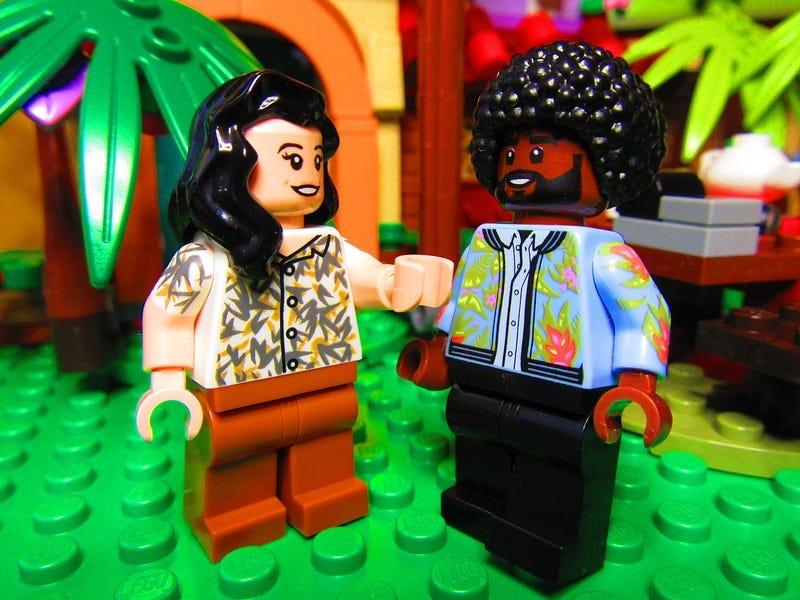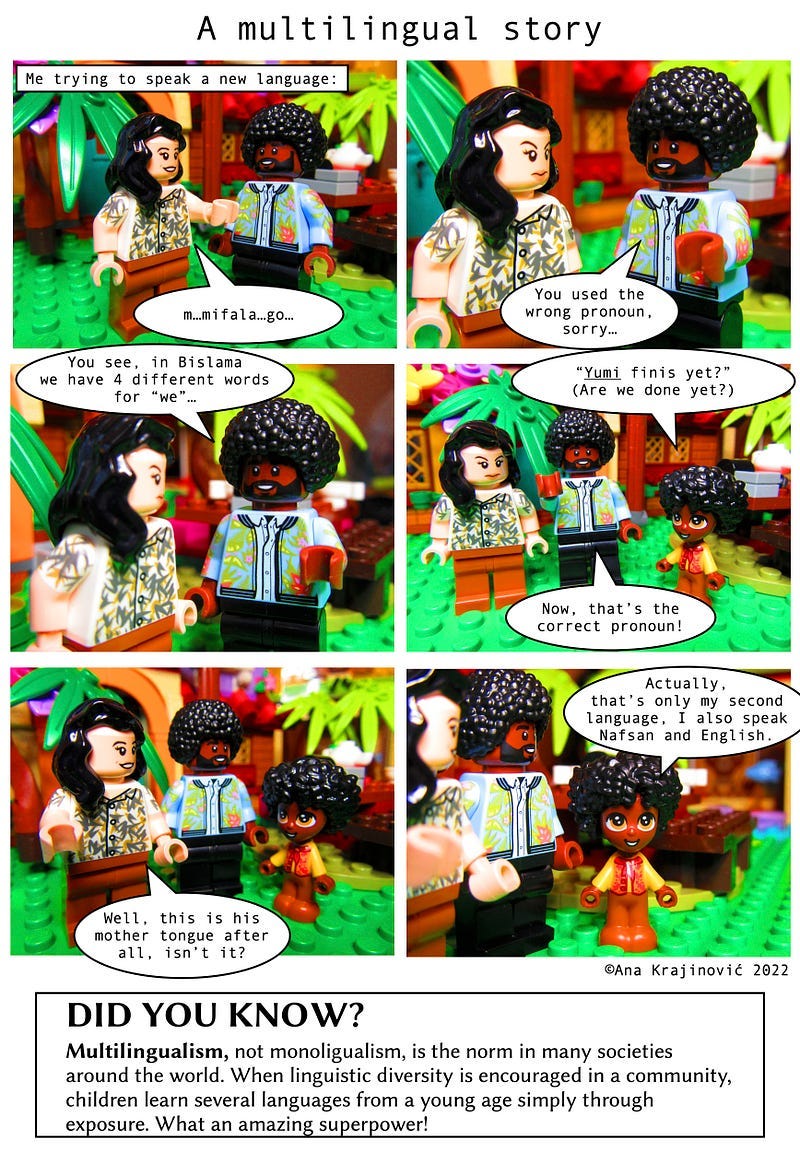We All Speak Different Languages: Why Is That a Good Thing?
Because we can have the experience of learning each other’s languages.
LANGUAGE EXPLAINED
Because we can have the experience of learning each other’s languages.
As a linguist, I often get asked the following: “Wouldn’t it be better if we all just spoke the same language? Can you imagine how many misunderstandings and communication problems would be prevented if everyone spoke English for example?”
Aside from the fact that many people around the world already do speak English as their second language, let us consider this question. Would it be better if we all spoke the same language or is the fact that we all speak different languages a good thing? Could it be that linguistic diversity also makes certain aspects of our lives better?
Linguistic diversification is natural and inevitable
The first thing we need to understand is that linguistic diversification is a natural evolutionary process and not a curse, like in the story of the Tower of Babel. Just like many animal and plant species evolved and exist today alongside humans, languages too evolved and diversified. How did this happen?
Imagine a village of people who speak the same language. If they live in prosperity, their population will grow over time. At a certain point, a number of people from the village might move upstream, to have more access to the river and fish for themselves. Since languages change slowly over time,* after a few decades, the languages of each group might start sounding different, even though they are still very similar and mutually understandable. These would now be two different dialects.
*This change is very slow. We can only notice it if we compare our speech to that of our grandparents. Think of how your grandparents speak and you will find certain words or expressions that your generation does not use anymore, and vice versa.
After even more time passes, and especially if the group that moved away from the village moves even farther away and loses contact with the initial village, their languages will now be so different in so many aspects that they cannot even talk to each other anymore. These would now be two different languages. This is called linguistic diversification. And since humans have done this process of moving farther and farther away so many times, we now have many languages in the world.
The social function of linguistic diversity
We all like to feel like we belong somewhere. I bet you do too. But what does that even mean? We humans are wired to live and organize ourselves into groups. It helps us survive, as we can divide tasks and be more efficient at collecting food at a larger scale or defending each other from potential dangers. But most importantly, living in groups helps us transmit knowledge to each other. But what does that have to do with language?
Alongside other cultural traits, like clothing or customs, language helps us maintain the feeling that we belong to a certain community. It is an immediate marker of a shared identity. Speaking the same language is very powerful and can immediately make us connect with people, even when we come from different regions. And even when these regions are in a political disagreement. What matters is the language, not the political conflicts back home. I have experienced these types of unexpected connections very often when Croatian and Serbian people meet.
So, if speaking a common language is what brings us closer, wouldn’t it be better if we all just spoke a single language? Well, the crucial point here is that even if we wanted to assimilate everyone into speaking one language, the human necessity for diversification, in-group identity building, and linguistic adaption to new communicative challenges would with absolute certainty create new variants of that “single language”.
In fact, we see it happening today with diverse forms of English: firstly as spoken in different countries (US, UK, Australia, India), or as spoken in their different regions (e.g. Southern American), or as spoken by second language learners of English, with numerous examples percolating the internet. In any scenario, linguistic diversification will find a way.
Regardless of the inevitability of this diversification, having to learn new languages has another unforeseen benefit: It strengthens our muscle to understand other people’s perspectives.
Learning languages leads to tolerance
While conflict is often exacerbated by diverging religious or ideological beliefs, when we learn each other’s languages, we learn how to understand other cultures and be more tolerant. In learning how to see the world through the lens of another language, we learn how to pay closer attention to the perspective of the other group speaking this language.
This way, learning each other’s languages can be the vehicle for creating a more tolerant society. Crucially, you can learn a language spoken by another community without adopting the entire culture of that community, which leaves you with the freedom to choose your other cultural practices.
In many societies around the world, multilingualism is the dominant practice. Southeast Asia and the Pacific are typical examples in linguistic literature, but we don’t even need to go that far (from the West). In all Western countries there are many communities that, in addition to the prevalent language spoken by the majority, speak another language.
In a multilingual upbringing, children are exposed to several languages from a young age and they learn them effortlessly. This is because any language we learn before the age of 12 will become our mother tongue. As children, we are specially equipped to learn languages efficiently and accent-free. We should harness this amazing superpower and normalize the multilingual upbringing.
It’s complicated
I know what you might be thinking. Speaking the same language doesn’t always lead to tolerance, as there are plenty of cases where people speaking the same language entered into conflict, sometimes with tragic consequences. Well, like everything else concerning humans, it’s complicated.
Yet, we know that as humans we tend to build groups and the cultural identity that goes with that group, including its language. And we also know that forceful assimilation never had positive consequences for anyone. Instead of assimilating under a single language, let us learn each other’s languages (and give jobs to human translators!). Let us embrace our linguistic diversity and let it teach us how to see the world through each other’s eyes.
If you liked this article, join our newsletter!







